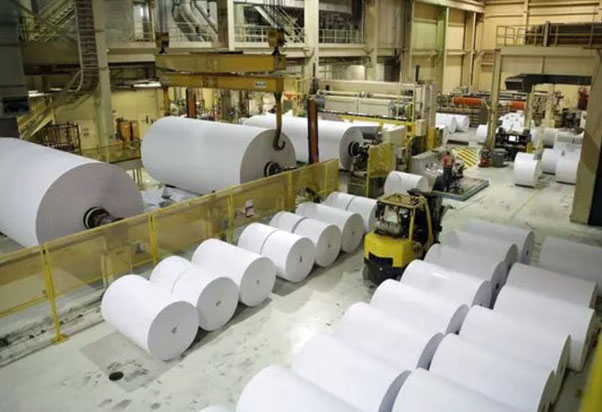Saving Wisconsin's Paper Industry - Be Proactive, not Reactive
![]() Print this Article | Send to Colleague
Print this Article | Send to Colleague
Wisconsin, USA, is a top manufacturing state and has been the number one paper-producing state in the U.S. for more than 50 years. Most of these mills are located in rural areas. One high-paying job lost affects another five to seven indirect jobs in each of these rural communities. These mills are thus their economic engines. Job retention is very critical.
With mills still closing down, a question lingers... will Wisconsin remain the top paper-producing U.S. state?
An article published earlier this week by the Post Crescent (Appleton, Wis., USA) seeks the answers to how Wisconsin can retain its pulp and paper related industry based on the observations of Masood Akhtar, the president and founder of CleanTech Partners in Middleton, Wis., USA. Akhtar has been dealing with the industry for over 30 years. Based on his own experience at state, national and international levels, he feels the answer is yes, if industry investors become more proactive and not reactive.
An article published earlier this week by the Post Crescent (Appleton, Wis., USA) seeks the answers to how Wisconsin can retain its pulp and paper related industry based on the observations of Masood Akhtar, the president and founder of CleanTech Partners in Middleton, Wis., USA. Akhtar has been dealing with the industry for over 30 years. Based on his own experience at state, national and international levels, he feels the answer is yes, if industry investors become more proactive and not reactive.

Here are Aktar's five basic recommendations:
- Create an active Revitalizing Pulp and Paper Industry Task Force. This should include representatives from industry, the Wisconsin Paper Council and various state agencies, including the Wisconsin Department of Natural Resources and Environmental Protection Agency Region 5. The committee members should meet semi-annually to discuss short-term and long-term needs and how various agencies can help support them. The discussion should also include how best to streamline the permitting process and cut unnecessary regulations without compromising the environmental quality.
- Create an active Bipartisan Wisconsin Paper Caucus and an active Bipartisan National Paper Caucus and assign a liaison to coordinate both. Manufacturing is so important that it shouldn’t rely only on one party in power at any given time. Therefore, these caucuses should be managed by bipartisan co-chairs. Historically, these caucuses haven’t been successful due to lack of active participation of industry leaders. Since the industry is changing rapidly due to increased global competition, industry leaders interaction with our elected officials early on is critical. The liaison will coordinate between the two caucuses to maximize the positive impact of state and federal policies on the industry. Working together in a bipartisan way will also eliminate the perception that the Republicans are anti-environment and the Democrats are anti-business.
- Establish a State-Industry Grant Fund. This joint fund (50% cost share between state and industry) should be established to evaluate new products. For example, funds can be used to study the technical and economic feasibility of producing packaging products using existing paper machines because of declining demand for products they are currently producing; increase paper strength by evaluating nano-materials; and producing value-added biofuels, biochemicals and bio-products from wood residues. The industry has substantial experience in biomass handling and has access to utilities, land and other infrastructure that can be used to fully integrate biorefineries into existing mills. This can generate more revenues, making them more profitable and sustainable. These funds can also be used for training employees. The state can also create some additional incentives to attract investors who are willing to invest in these biorefineries. Quite often one company has several mills across the country or globe and each mill competes for capital. Therefore, special incentives should also be created to convince industry leaders to invest in their Wisconsin mills.
- Establish a Manufacturing Revolving Loan Fund. The industry may be able to utilize these funds to reduce their manufacturing costs if they have limited capital and have cash flow issues. This loan should be interest-free with flexible repayment terms and conditions that fit into a company's needs.
- Establish an Educational Endowment Fund by creating a nonprofit entity. Companies taking advantage of the state taxpayers' dollars should be required to donate (tax deductible) a small portion of their annual revenues to this fund. These funds should be used as interest-free loans to pay for higher education. This will motivate students to get a degree in the pulp and paper sciences, which should include some courses on bio-based economy. Students will be required to work for these companies for at least five years after graduation.
Akhtar, in conclusion, noted that Wisconsin has a unique potential to develop a successful model to help the paper industry in what can be a politically bipartisan way.


